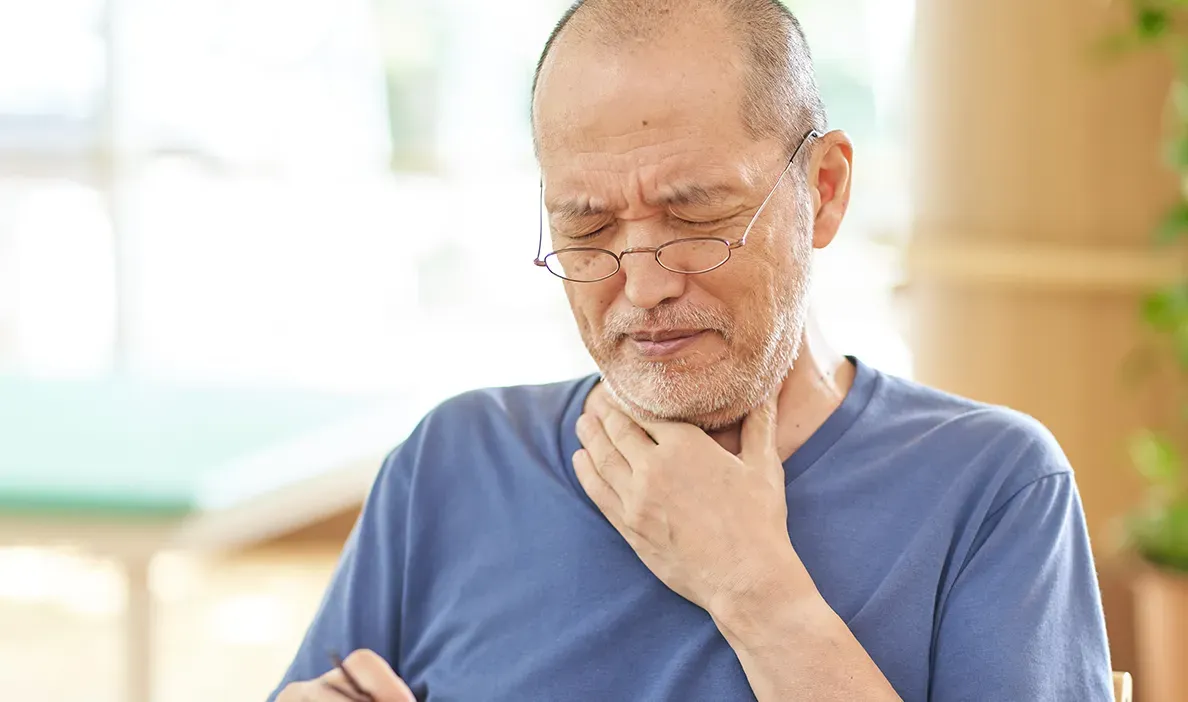Cancer and its treatments can cause various symptoms and side effects. While many side effects will go away on their own once the treatment has finished, there are times when you may need extra support.1 It’s important to know when to reach out to your healthcare team to stay safe and well.
Managing side effects at home
Some common side effects of cancer treatment may be managed at home. For example:
- Fatigue (feeling very tired all of the time) is common during cancer treatment.2 Setting a sleeping routine to try to follow, or doing some light exercise every day and following a healthy diet, may help you manage your energy levels3
- Nausea (feeling or being sick) can be helped with anti-sickness medications from your doctor. Eating small, frequent meals and avoiding greasy, fatty, spicy or strong-smelling foods may also help4
- Diarrhoea may go away on its own. Make sure you drink plenty of fluids to avoid becoming dehydrated. If the diarrhoea doesn’t go away on its own, your healthcare team may be able to prescribe you some medicines that can help5
- Pain can be managed with prescribed pain relief medications. It’s important that you take these exactly as prescribed6
- Mouth symptoms can be cared for by brushing your teeth gently and with a soft toothbrush, using alcohol-free mouthwashes, and eating soft foods that are gentle on the mouth7
- Skin symptoms like rashes and redness can usually get some relief by applying gentle, perfume-free moisturisers, using gentle products when bathing, and wearing comfortable, loose-fitting clothes 8,9
Click on each of these symptoms to find out more about them and how to manage them.
When to contact your healthcare team
While you may feel able to manage side effects at home, it’s important to know when you need some extra support from your healthcare team.
If you notice that your side effects are not getting any better, if they are becoming more difficult to manage, or if you feel that they are getting worse, contact your healthcare team.10 It's important to be aware of both side effects included in your patient information leaflets, but also any other potential side effects that may arise. You can also report side effects directly via the Yellow Card Scheme at https://yellowcard.mhra.gov.uk
If you begin to experience a temperature higher than 37.5°C or lower than 36°C, sickness that is difficult to stop, or severe diarrhoea, you should get medical attention straight away. These side effects could be a sign that something is not right.10
It’s important that your healthcare team is aware of your side effects as soon as they start – even if you are able to manage them at home. This means they can monitor you and provide their support if, or when, you need it.
References
- Cancer Research UK. About side effects of chemotherapy. Available at: www.cancerresearchuk.org/about-cancer/treatment/chemotherapy/side-effects/about [Accessed June 2025].
- Cancer Research UK. What is cancer fatigue. Available at: www.cancerresearchuk.org/about-cancer/coping/physically/fatigue/what-is-cancer-fatigue [Accessed June 2025].
- Cancer Research UK. Managing and treating cancer fatigue. Available at: www.cancerresearchuk.org/about-cancer/coping/physically/fatigue/managing-treating-cancer-fatigue [Accessed June 2025].
- Milton Keynes University Hospital. Are you feeling sick? Available at: www.mkuh.nhs.uk/patient-information-leaflet/are-you-feeling-sick [Accessed June 2025].
- Cancer Research UK (2023). Digestion problems. Available at: www.cancerresearchuk.org/about-cancer/coping/physically/diet-problems/types/digestion-problems [Accessed June 2025].
- Macmillan. Pain. Available at: www.macmillan.org.uk/cancer-information-and-support/impacts-of-cancer/pain [Accessed June 2025].
- MyHealth.Alberta.ca (2024). Stomatitis: Care instructions. Available at: https://myhealth.alberta.ca/Health/aftercareinformation/pages/conditions.aspx?hwid=zp4165 [Accessed June 2025].
- City of Hope. Skin care and cancer treatment. Available at: www.cancercenter.com/treatment-options/skin-care [Accessed June 2025].
- BreastCancer.Org. Rash. Available at: www.breastcancer.org/treatment-side-effects/rash [Accessed June 2025].
- Cancer Research UK. Capecitabine. Available at: https://www.cancerresearchuk.org/about-cancer/treatment/drugs/capecitabine [Accessed June 2025].






